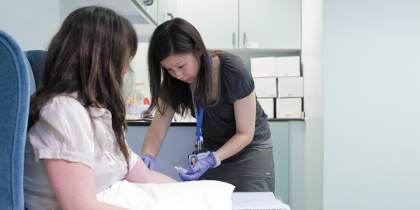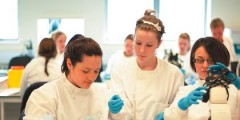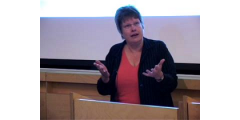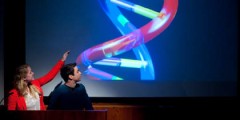Interprofessional teaching of communication skills
September 12, 2006
Simon Conroy, Lyneth Evans, Sujay Galen, Amy McPherson and Nick Raine-Fenning: Background “Communication skills are essential for all healthcare professionals when interacting with patients. Improving their communication skills can also lead to improved health outcomes for patients. Video feedback gives the student an opportunity for reflection, and is advocated by professional bodies in healthcare. “There …
An approach to understanding and developing undergraduate students’ research strategies
Mark Bradley, Christian Haase, Helen Hill, Katharina Lorenz, Violeta Sotirova and Lloyd Weeks: “Scholarship at university incorporates a number of practices different from the study techniques students develop to succeed at school. A key aim of this cross-disciplinary project is to understand and develop academic learning and critical thinking among our students, and to explore …
Using laboratory classes to teach experimental design
March 31, 2006
John Harris, Martin Luck and Alan Waterfall: Background “In previous years Animal Physiology students have carried out set laboratory experiments to illustrate the effects of exercise on cardiovascular responses. These were prescriptive laboratory sessions, each resulting in a written report. The teaching team felt that many students were completing these with insufficient thought and without …
Jude Carroll on plagiarism
January 17, 2006
Video >> Jude Carroll: “And what’s interesting about the question “Are any of these people plagiarists?” is actually that question is “What do you mean by the words that are in this definition?”. And one of the things that I think is very interesting is that the definition of plagiarism is not a platonic ideal …
Dealing with information overload: student teach thy self
September 29, 2005
Ian Spendlove: “The Biomedical Sciences are subjects that are or appear to be heavily dependent on a large volume of information with an apparent emphasis on facts and content. Traditional didactic teaching approaches are common practice in these subjects. In order to address the potential for information overload, avoid student disengagement and stave off embarrassing …
Creativity and criticism: spotting a gap and motivations to change
June 27, 2005
Peter Howarth: “I joined the Department in 2000 and as part of my teaching, began a module on Modern Poetry. I realised that the students had to develop an understanding of the shape and form of poetry, and how form affects meaning; students read poetry as if they were reading a novel, and when asked …
Did curiosity do anything more than kill the cat? The place of curiosity in Higher Education
September 14, 2004
Boyan Bonev, Catherine Cowley, Michelle Hall, Henrik Nilsson, Frazer Pearce, Theo Stickley and Sarah Westwater-Wood: “The University of Nottingham’s, Learning and Teaching Strategy for 2002-2005 states that the University is committed to excellence in the advancement and communication of knowledge. One of the ways in which it aims to advance knowledge is by “equipping students …







